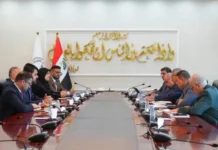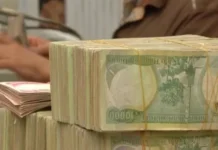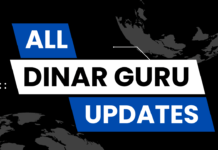Today, an economic expert explained the factors behind the recent increase in the US dollar exchange rate in Iraqi markets, including those in Sulaymaniyah in the Kurdistan Region. The expert clarified that it is not the responsibility of the Central Bank to trade dollars with the local currency and suggested that this should be left to the “black market” for market stability.
During an interview with Shafaq News Agency, economist Dana Mawloud explained two primary reasons for the unexpected increase in the dollar exchange rate. Firstly, the Central Bank of Iraq has announced that they will no longer provide the markets with dollars starting next year. Secondly, certain media outlets have been exaggerating this situation, causing citizens to choose to collect dollars instead of local currency.
Mawloud explained that the Central Bank of Iraq, in collaboration with the World Bank and the US Treasury, has decided to halt the circulation of currency from January 1st to prevent the flow of US dollars from Iraqi markets to Iran and Turkey, who are the biggest buyers of US dollars from Iraq.
According to Mawloud, the Central Bank is the sole entity that sells foreign currency in the market and functions as a money exchange. No other bank in the world sells foreign currency. He also stated that the issue should be left to the black market, and the Central Bank and other banks should exchange and transfer currencies. If the foreign exchange rate is based on the government rate, then the dollar exchange rate will remain stable within the government-specified rate and not exceed 137,000 dinars for every 100 dollars.
Mawloud explained that the dollars pumped by the Central Bank of Iraq do not benefit Iraqi citizens but instead go to banks and companies, which leads to currency smuggling.
On Saturday, the exchange rate at the Sulaymaniyah Stock Exchange was 158,500 dinars per 100 US dollars.




